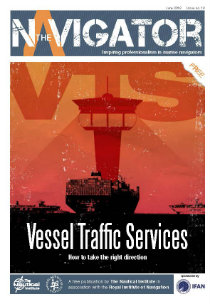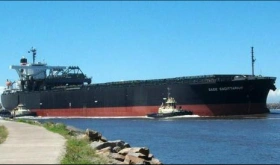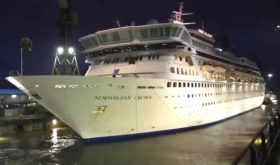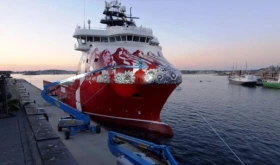Last Friday on April 4, 2014, IMO MEPC on its 66th session, agreed on stricter requirements for vessels’ NOx emissions in specific areas, the so called NECAs. During this session the entry into force date of these requirements has been also agreed, although until the final MEPC decision, there was a disagreement for this matter from a number of countries headed by Russia.
Seafarers and Administrative Burdens
Lately, due to a DMA report, there has been a lot of talk regarding administrative tasks in the maritime sector. In this article the findings of this report are being highlighted. The DMA report contains data from three studies on administrative burdens in the maritime sector. The first two studies on Danish seafarers and Danish shipping companies found that Danish seafarers use up to 20% of their working time on tasks they consider as administrative burdens and for employees in shipowners’ offices ashore the figure was 9 %. The study that has been conducted on international seafarers (with data from 59 nationalities) showed that 30 % of international seafarers feel that they spend too much time on tasks that they consider to be administrative burdens.
MLC 2006, a Ship Without Rudder and Compass? Time Will Tell…
Today the Maritime Labour Convention, MLC 2006, officially enters into force. The MLC was established during 2006 as the Fourth pillar of the international maritime law, the other three pillars are the SOLAS, STCW and MARPOL. A lot has been written about the subject and the general “atmosphere” that has been maintained in the industry is that the convention is for the good of the seafarers and a powerful tool to help them defend their rights. In May 1, the International Workers’ Day, the Officer of the Watch blog started a poll about what our readers believe regarding the MLC by simply asking if it will improve the seafarers’ life onboard.
North American ECA Related Deficiencies
Last August the North America ECA low sulphur requirements came into force and as a result the sulfur content of the fuel oil used onboard ships operating in this area may not exceed 1.00% m/m (10,000 ppm). This new requirement comes to add further restrictions on the fuels’ sulphur levels and gives the PSCO the ability to examine either the vessel’s SMS or its equipment or relevant records on whether or not they are in line with ECA regulations.
Ships’ Garbage Management under Revised MARPOL Annex V
Revised MARPOL Annex V sets new regulatory requirements regarding the disposal of garbage from ships and will come into force on 1 January 2013. The new amendments prohibit the disposal of almost all kinds of garbage at sea with the exemption under specific requirements of food waste, animal carcasses, cargo residues contained in wash water and environmental friendly cleaning agents. As a result of these regulations more and more ships will dispose their ship-generated waste to reception facilities ashore. MARPOL Annex V applies to all ships.
Panama Canal Bridge Visibility Requirements
Vessels arriving at Panama Canal waters, must comply with the visibility requirements from the conning positions on the Bridge deck, in order to be granted safe passage through the canal and ensure the navigational safety of the vessel. Non-compliance with Panama Canal rules and regulations may subject vessels to unnecessary delays or denial of transit or even the imposition of fines. Non-compliant vessels will need to take further risk control measures such as additional pilots or tugs (decided on a case by case basis by the ACP).

Photo: justinsomnia.org
Increasing Safety through Cognition
This month OGP’s Human factors Sub-Committee (HFSC) released a report on its website based on a study regarding the cognitive issues that are associated with safety and environmental incidents within the oil and gas industry.
Regarding safety issues it should be understood that engineering solutions alone may not be enough to prevent hazardous occurrences, no matter how well designed an engineering system may be. The role that human resources play in the operation of any safety-system is often critical and it requires significant support as well as knowledge and understanding of safety issues. OGP’s study direction is towards a better understanding of the psychological basis of human performance which is critical for safety systems performance, their operation as well as their future improvement.
Seafarer Claim in Court Regarding Fatigue
A recent court ruling in Florida Miami where the maritime law firm Lipcon, Margulies, Alsina & Winkleman, P.A. representing Chief Mate William Skye against Maersk for excessive dangerous working conditions, sets a legal precedent, leaving shipowners to face legal actions from seafarers who believe that working conditions onboard have affected their overall health.
Underwater Welding
Underwater-welding for marine maintenance and repair jobs bypasses the need to pull the structure out of the sea and saves much valuable time and therefore it is considered as an economical advantageous method when there is little time or due to operational requirements. The main difficulties in underwater welding are the presence of a higher pressure due to the water head under which welding takes place, chilling action of the water on the weld metal (which might change the metallurgical structures and properties), the possibility of producing the arc mixtures of hydrogen and oxygen in pockets, which might set up an explosion, and the common danger sustained by divers, of having nitrogen diffused in the blood in dangerous proportions.




















